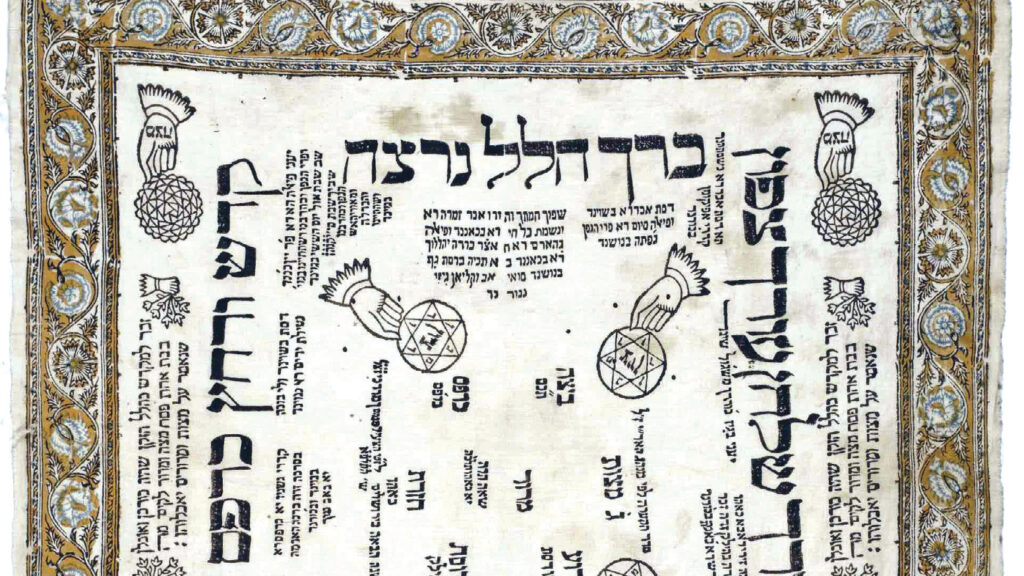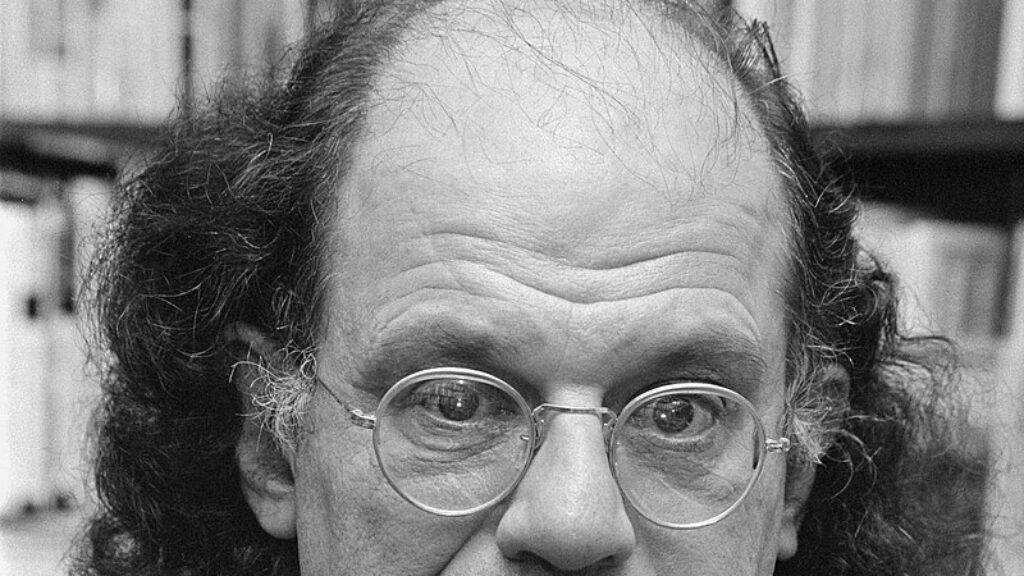Lessons from Under Devorah’s Date Tree
BY RITA SETTON
If one were to choose Judaism’s most prominent or distinguished teacher, Moshe Rabbeinu or Avraham Avinu instantly come to mind—and with good reason. During their lives, they actively spread Hashem’s holy word to Bnei Yisrael, and in the Jewish tradition today their examples serve as beacons of Torah learning and teaching. Moshe would sit “from the morning to the evening” judging and teaching the nation, while, according to the biblical commentator Ibn Ezra, Avraham would fearlessly preach truth to Mesopotamian idolaters and convert them to Judaism.
One individual who likely does not come to mind when contemplating the most esteemed teachers in the Tanakh is Devorah the Prophetess. The fourth shofetet (judge) in Sefer Shoftim (The Book of Judges), Devorah is not extremely noteworthy in her own right; she would simply judge the people under a date tree in Ramah and teach them. So, what, exactly, makes Devorah the Prophetess so remarkable?
To understand Devorah’s significance, we must first consider what makes an outstanding teacher. What are the characteristics of an exemplary educator? Is it simply the ability to impart knowledge to students? Or is there some enigmatic trait that only a formidable teacher can lay claim to?
When closely examining Devorah’s story, one can glean an essential understanding of what makes such a great teacher. In the fourth chapter of Sefer Shoftim, Devorah commands her army general, Barak, to wage war on the Canaanite commander Sisera and his army:
וַתִּשְׁלַ֗ח וַתִּקְרָ֙א֙ לְבָרָ֣ק בֶּן־אֲבִינֹ֔עַם מִקֶּ֖דֶשׁ נַפְתָּלִ֑י וַתֹּ֣אמֶר אֵלָ֗יו הֲלֹ֣א צִוָּ֞ה ה׳ אֱלֹהֵ֣י יִשְׂרָאֵ֗ל לֵ֤ך֙ וּמָשַׁ֣כְתָּ בְּהַ֣ר תָּבֹ֔ור וְלָקַחְתָּ֣עִמְּךָ֔ עֲשֶׂ֥רֶת אֲלָפִ֖ים אִ֑ישׁ מִבְּנֵ֣י נַפְתָּלִ֔י וּמִבְּנֵ֖י זְבֻלֻֽן׃ וּמָשַׁכְתִּ֞י אֵלֶ֣יךָ אֶ֠ל־נַ֣חַל קִישׁ֗ון אֶת־סִֽיסְרָ֞א שַׂ֤ר־צְבָא֙ יָבִ֣ין וְאֶת־רִכְבּ֣וֹ וְאֶת־הֲמוֹנ֔וֹ וּנְתַתִּ֥יו בְּיָדֶֽךָ׃
She summoned Barak son of Abinoam, of Kedesh in Naphtali, and said to him, “The ETERNAL, the God of Israel, has commanded: Go, march up to Mount Tabor, and take with you ten thousand men of Naphtali and Zebulun. And I will draw Sisera, Jabin’s army commander, with his chariots and his troops, toward you up to the Wadi Kishon; and I will deliver him into your hands.” (Judges 4:6–7)
Barak, however, adamantly refused to do so unless Devorah, his teacher, went with him into battle:
וַיֹּ֣אמֶר אֵלֶ֔יהָ בָּרָ֑ק אִם־תֵּלְכִ֤י עִמִּי֙ וְהָלָ֔כְתִּי וְאִם־לֹ֥א תֵלְכִ֖י עִמִּ֑י לֹ֖א אֵלֵֽךְ׃
But Barak said to her, “If you will go with me, I will go; if not, I will not go.” (Judges 4:8)
When Devorah agrees to go into battle with Barak, Barak’s confidence seems to be almost magically revitalized, because Sefer Shoftim goes on to say that Barak did indeed wage war upon Sisera and his army, and despite being outnumbered, emerged victorious.
וַיִּרְדֹּ֣ף בָּרָ֗ק אַחֲרֵ֤י הָרֶ֙כֶב֙ וְאַחֲרֵ֣י הַֽמַּחֲנֶ֔ה עַד־חֲרֹ֖שֶׁת הַגּוֹיִ֑ם וַיִּפֹּ֞ל כָּל־מַחֲנֵ֤ה סִיסְרָא֙ לְפִי־חֶ֔רֶב לֹ֥א נִשְׁאַ֖ר עַ֥ד־אֶחָֽד׃
Barak pursued the chariots and the soldiers as far as Harosheth-goiim. All of Sisera’s soldiers fell by the sword; not one was left. (Judges 4:16)
There is a lesson to be learned here: When a general is going into a war, the first person they pick to accompany them is not typically their teacher. It is usually a battleground expert, a retired intelligence officer, or a strong warrior. Why would Barak decide that it was Devorah who should accompany him?
I recently overheard a fellow student, as he was approaching graduation, tell his English teacher that he felt he couldn’t leave the school unless she toughened up on him in the weeks leading up to graduation. She wasn’t just his English teacher; she was also a comforting presence and someone who instilled confidence in him. I see this situation paralleled in the story of Barak and Devorah. Barak needed Devorah in battle, not because of her expertise in strategy or her talent with a spear, but because of her ability to instill confidence in her students.
Despite being a well-respected general, Barak was still Devorah’s student. It is clear from their story that to be an eminent teacher, it is not only expected but required to instill confidence even in the strongest students, to have pupils cling to and refuse to cleave themselves from their teacher. A teacher is, in essence, a leader. Moshe, Avraham, and Devorah did not only teach Jewish law, but they wisely and fearlessly led people despite adversaries like Korach, Sisera, and Nimrod who attempted—and failed—to overthrow them.
Avraham, Moshe, and Devorah all have the traits of exemplary teachers, but these leaders also demonstrated unwavering belief in Hashem. God is the ultimate guide and teacher, a constant and reassuring presence who has the most devoted pupils—Am Yisrael. He is always there; as His students, we just need to open our hearts.
Suggested Reading

Shining Our Light Unto the Nations Through Jewish Teachings
BY ADIN LINDEN Jewish history is rife with enemies, from the Egyptians to the descendants of Amalek, a lineage that is seen as the greatest enemy of the Jews and…

Between Separating Ourselves and Seeing Ourselves in Others
BY YAEL BURGESS EISENBERG When a gentile came before Hillel and said he would convert to Judaism if Hillel could teach him the entire Torah while standing on one foot,…

Fortifying the “Torah” in Torah u-madda: A Plea to Modern Orthodox Day Schools
In a deep look at his background and motivations, the picture of Jewish writer Allen Ginsberg becomes more clear to the observer. His difficult past and masterful mix of secular, religious, and kabbalistic, as well as various other, themes in his work came to a head in his poem "Kaddish", written to be an elegy for his mother.

Learning as Creation: The Power of Jewish Education
BY ZACHARY KROHN It is no secret that education is one of the highest values of Judaism, and one can give many reasons for why that is the case. Education…